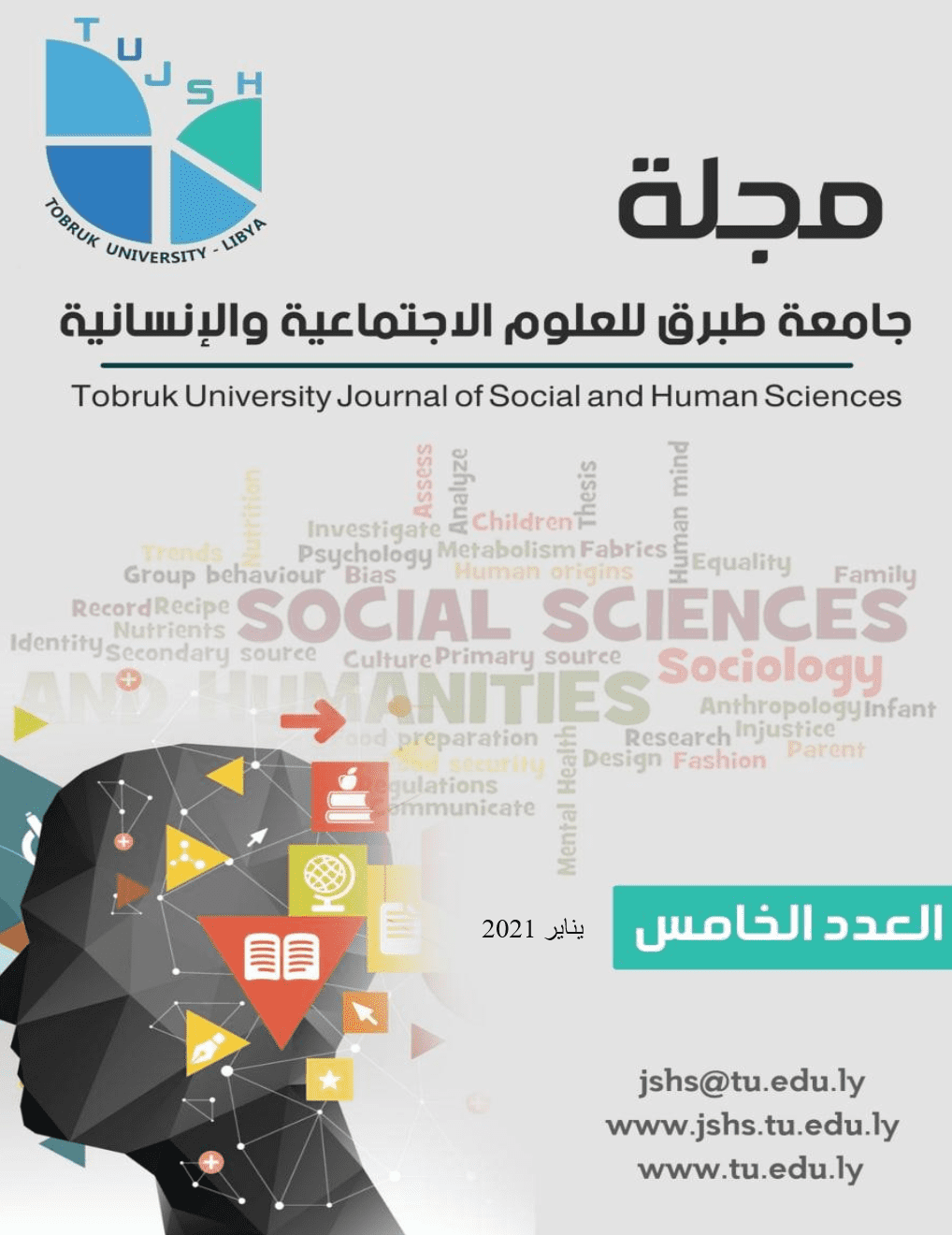The effect of family treatment methods on academic achievement
A field study applied to the vital area of the secondary stage in the city of Sirte
DOI:
https://doi.org/10.64516/qm2efe17Keywords:
Secondary stage, academic achievement, family treatmentAbstract
There is no doubt that there are many factors that affect the level of academic achievement of students, the most important of which are the methods of family therapy and the extent of their positive or negative impact on children. Hence, the study aimed to identify the parental treatment methods that fathers use for their children, and their impact on the level of academic achievement. They have, and are trying to find appropriate solutions and proposals to reduce the seriousness of the phenomenon of family abuse and its impact on the poor academic achievement of the student, by educating parents on how to deal with their children, and promoting normal family methods and their impact on high academic achievement and their social behaviors and behaviors. As for the sample social survey, it relied on the questionnaire tool to collect data, and the sample size was (92) male and female students, and it was drawn using the stratified random sampling method. The study found some results, the most important of which is that the most important methods that affect the high level of academic achievement for students are the way to continue their studies, pay attention to their duties, provide for their needs and school supplies, and reward during that. Success, advice and counseling during repetition, and not using a discriminatory approach to treatment among children. The study also found that the most important methods that affect the low level of academic achievement are the method of neglect and failure to follow up on their homework, and the method of punishment and cruelty during the failure to study.
Downloads
References
1-فضيلة عرفات السبعاوي، الخجل الاجتماعي وعلاقته بأساليب المعاملة الوالدية، دار صفاء،عمان،الأردن،2009
2-عمر عبدالرحيم نصرالله، تدني مستوى التحصيل والانجاز المدرسي، أسبابه وعلاجه، دار الأوائل،عمان،الأردن،2004.
3. حسين عبد الحميد أحمد رشوان، التنشئة الاجتماعية "دراسة في علم الاجتماع النفسي، دار الوفاء، الإسكندرية، ط 1، 2012.
4. رشاد صلاح الدمنهوري، وعباس محمود عوض، التنشئة الاجتماعية والتأخر الدراسي، دار المعرفة الجامعية، الإسكندرية، مصر، 1995.
5-سمير نعيم أحمد، النظرية في علم الاجتماع، دار المعارف،القاهرة،مصر،2006.
6-مصطفي خلف عبدالجواد، نظرية علم الاجتماع المعاصر، دار المسيرة،عمان،الأردن،ط1، 2009.
7. زينب عبد الله سالم، أثر المعاملة الأسرية في التحصيل الدراسي، دراسة تطبيقيَّة لدى طلاب مرحلة التعليم الثانوي، رسالة دكتوراه غير منشورة، قسم الدعوة والتنمية البشرية، أكاديمية الدراسات الإسلاميَّة – جامعة مالايا – كوالامبور، 2017.
8. سالمة مسعود موسى، العوامل الأسرية والتعليمية وعلاقتها بالتأخر الدراسي، دراسة ميدانية على عينة من تلاميذ مرحلة التعليم الأساسي، رسالة دكتوراه منشورة "دار ابن خلدون"، قسم علم الاجتماع – كلية الآداب – جامعة عين شمس، 2014.
9. عبد الرحمن السنوسي ميكائيل، أساليب المعاملة الوالدية وعلاقتها بالتحصيل الدراسي، دراسة ميدانية على عينة من تلاميذ مرحلة التعليم الأساسي، كلية التربية، جامعة عمر المختار، 2012 م.
10. نيرمين محمد أحمد عبد الهادي، بعض المتغيرات الأسرية والنفسية المرتبطة بالسلوك العدواني لدى طلاب المرحلة الثانوية، رسالة ماجستير غير منشورة، قسم الإرشاد النفسي، معهد الدراسات والبحوث التربوية، جامعة القاهرة، 2004.
Downloads
Published
Issue
Section
License
Copyright (c) 2021 أ.نومة حمد محمد الأسود، أ.سعاد خلف الله عبدالرحمن (Author)

This work is licensed under a Creative Commons Attribution 4.0 International License.








